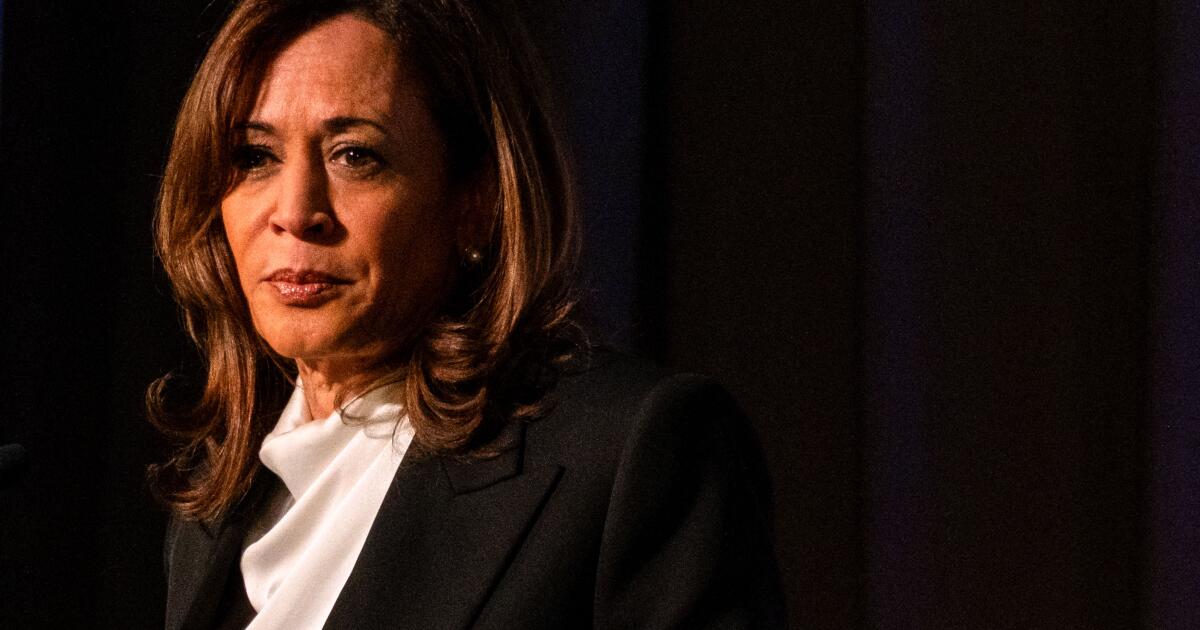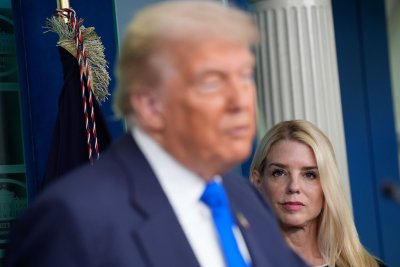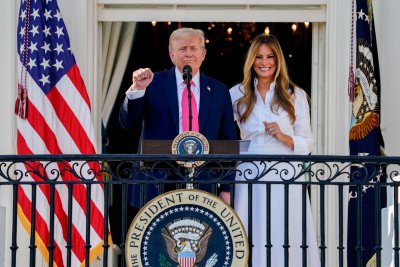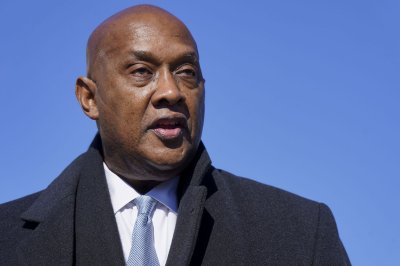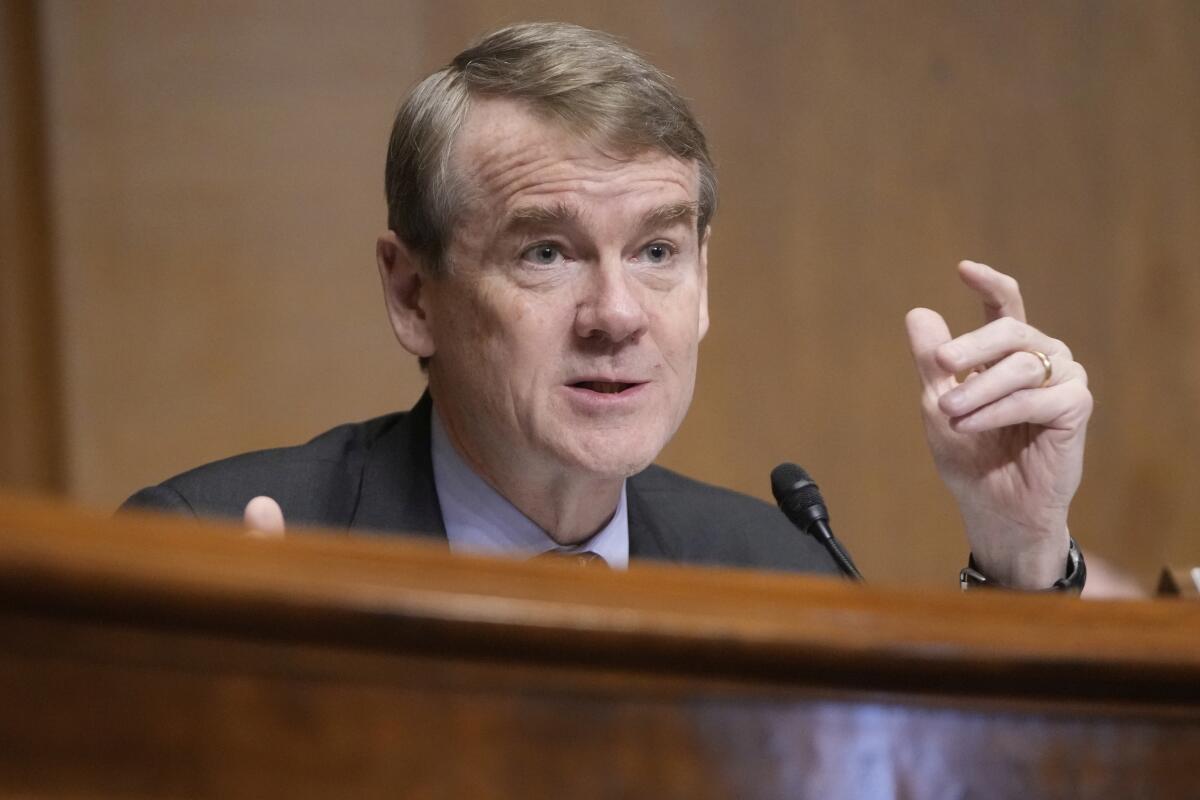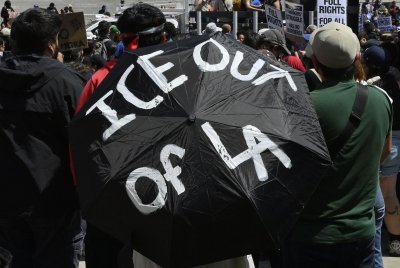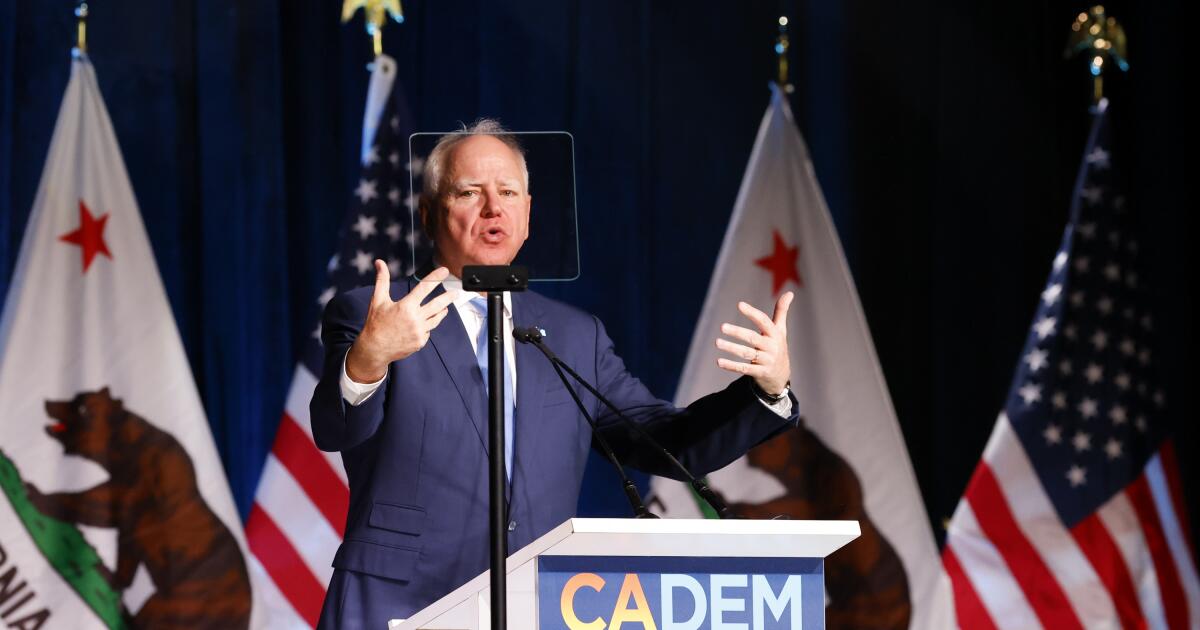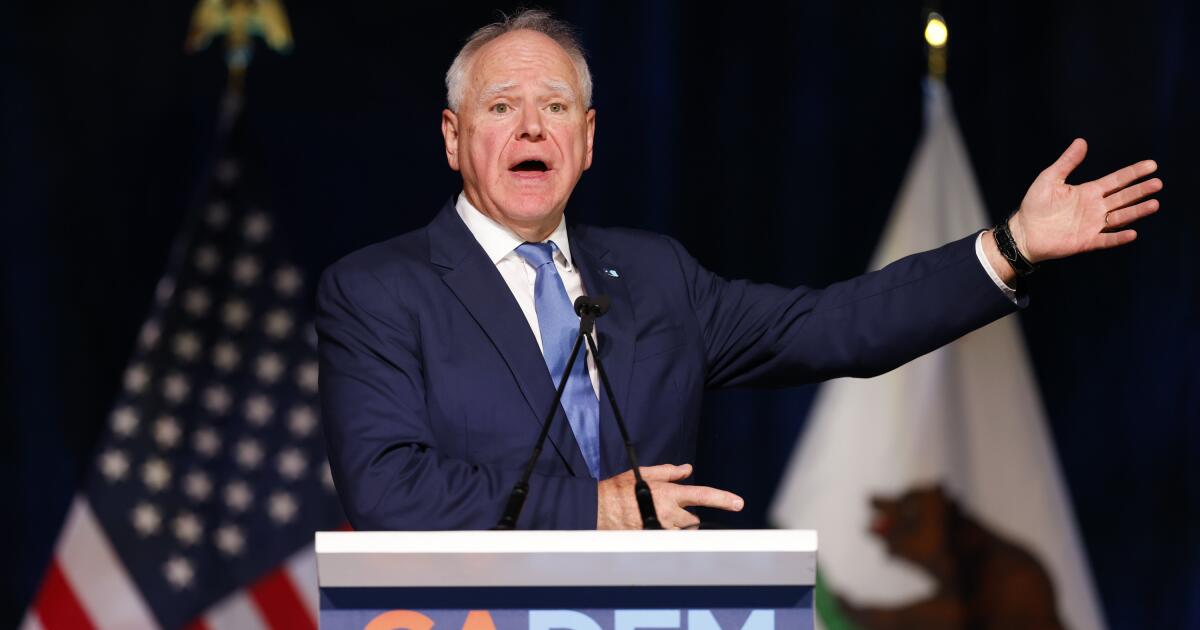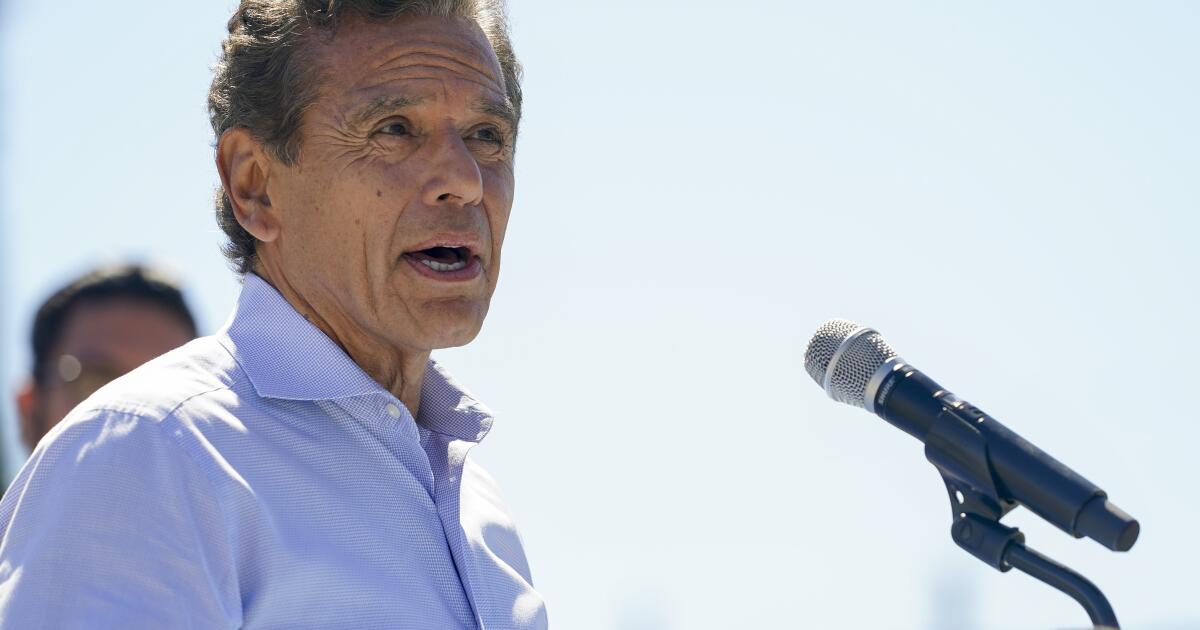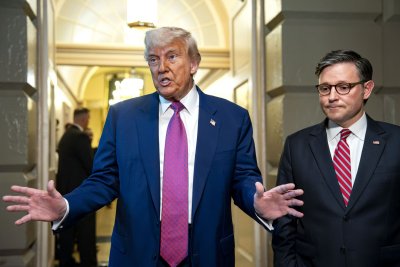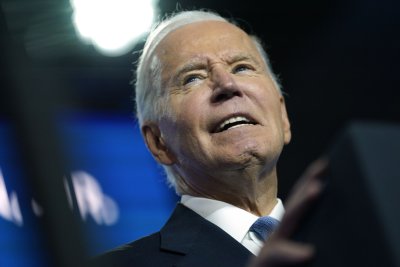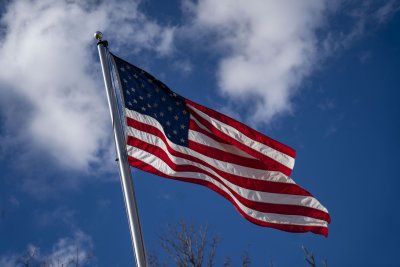Will she or won’t she? The California governor’s race waits on Kamala Harris
The Democrats running for California governor have spent the spring and summer working to win over the powerful donors and interest groups who could help them squeak through a competitive primary election.
But the candidates, and many deep-pocketed Democrats, are still waiting for the decision that will have the biggest impact on the race: whether former Vice President Kamala Harris is running.
Since Harris lost to President Trump in November, the race to replace Gov. Gavin Newsom has been in suspended animation, with candidates trying to plan their campaigns without knowing who their biggest opponents will be. A few are making contingency plans to run for other offices. And some major donors are waiting to write big checks.
“It creates a little bit of a limbo situation,” said Tony Thurmond, the state superintendent of public instruction who launched his gubernatorial campaign in 2023.
The Democrats in the race are talking to many of the same potential donors, Thurmond said, and most have the same question: “Is she going to run?” The only answer, Thurmond said, is an unsatisfying one: “We don’t know.”
Since leaving Washington in January, Harris has mostly stayed out of the public eye, settling back into her Brentwood home with her husband, Doug Emhoff, and talking to close friends and confidantes about what she should do next. She is weighing whether to leave politics, run for governor or run for president for a third time. She is expected to make a decision about the gubernatorial race by the end of summer.
The Democrats who are already running for governor lack Harris’ star power, and her entry could upend the race. But the former vice president would also face questions about her 107-day sprint to the White House, what she knew about President Biden’s decline and whether someone who has run unsuccessfully for president twice really wants to be California’s governor.
“She is looking closely where is the best place to put her energy and focus and her time,” said Debbie Mesloh, a longtime Harris ally.
The few public appearances Harris has made this year — meeting with firefighters in Altadena, attending a high school graduation in Compton and headlining a Democratic National Committee fundraiser in the Bay Area — have been fodder for those trying to read the tea leaves. What does it mean that Harris skipped the state Democratic Party convention? That Emhoff has taken a teaching job at USC?
Harris had originally planned to take a two-week vacation at the end of this month but has canceled her trip, according to someone familiar with her plans.
Harris has also been in New York, where she attended Broadway plays and the exclusive Met Gala; in San Francisco, where she dined with her niece Meena at the high-end Japanese restaurant Shoji; and in Los Angeles, where she has shopped for groceries at a 99 Ranch Market in Westwood and the Brentwood Farmers Market.
As the months have worn on, some gubernatorial campaigns have started to think that Harris’ victory feels like less of a foregone conclusion than if she’d announced in January after leaving office.
Former Los Angeles Mayor Antonio Villaraigosa, former Biden Cabinet secretary Xavier Becerra and former U.S. Rep. Katie Porter of Irvine have said that they will stay in the race no matter what.
Veteran state Senate leader Toni Atkins of San Diego said she is also staying in if Harris runs, saying in a statement that “while the vice president has her own path, our campaign is moving full speed ahead.”
Former state Controller Betty Yee said in an interview this week that even if Harris runs, she is staying in, too.
“No, no, no,” Yee said, of the possibility of seeking another statewide office. Being governor, she said, “is what I feel like I’ve prepared to do. I will be staying in the race and really leaning into my fiscal and financial background.”
Yee said when she talks to donors, they want to know two things: how California can push back against the Trump administration, and what she will do if Harris enters the race.
Dan Newman, a political strategist who’s worked for Newsom, Harris and several of the gubernatorial candidates, said that the race is at an odd inflection point, with candidates who “don’t know who their potential voters are, because they don’t know who they’re running against,” and some donors who are waiting — at least for now — to write big checks.
“They’ve got a good excuse to not give, because even if they are a big fan of a candidate who’s in the race now, they don’t know if the candidate will stay in the race,” Newman said. “Then there are others who don’t want to give to someone who might run against her.”
Eric Jaye, a political strategist who previously worked for Villaraigosa’s 2018 gubernatorial campaign and advised Newsom when he was mayor of San Francisco, said he’s hearing “frustration” from donors who are ready to see the race pick up speed.
“They’re not going to wait much longer,” Jaye said. “There are going to be donors who say, ‘We have to go. We’re not going to wait for you.’”
But even if Harris entered, that wouldn’t be a guarantee that donors would back her again, including those who are angry that she spent nearly $1.5 billion in campaign funds in her compressed campaign for the White House in 2024.
“The money is very, very upset with her,” said gubernatorial candidate Stephen Cloobeck, a businessman and Democratic donor who is running for California governor. “They’re my friends. I’m part of that money. Everyone is thoroughly reeling.”
The amount of money that candidates raise is one way to gauge their support — and prospects. That picture remains a little fuzzy, though, since gubernatorial candidates have until July 31 to report their fundraising hauls from the first half of the year.
The only candidate to release numbers so far is Becerra, who said he raised $2.4 million since entering the race in early April, including a $1.1-million transfer from his congressional campaign account. Becerra’s campaign has $2 million on hand, including the largest contributions allowed by law — $39,200 — from the politically connected Agua Caliente Band of Cahuilla Indians and Pechanga Band of Indians.
Campaigns are required to report contributions of $5,000 or more shortly after they receive them. Those figures don’t represent total fundraising, but can still show a campaign’s trajectory.
Three of the eight candidates have raised less than $100,000 this year in chunks of more than $5,000 at a time, state data show. Yee reported $71,900 and Thurmond, $32,500.
Lt. Gov. Eleni Kounalakis reported raising $70,000, including $5,000 from Google. Her campaign said Kounalakis, who has been raising money since entering the race in April 2023, has $9 million on hand.
“I want to be clear that I’m in this race to win,” Kounalakis said.
Villaraigosa, who entered the race last summer, has raised almost $1 million this year through large donations, data show. Atkins reported about $381,000 this year, and Cloobeck, about $132,000.
Porter, who entered the race in March, reported almost $475,000 in larger contributions, according to state data. She also transferred $942,000 from her U.S. Senate account to her gubernatorial account, according to federal filings made public Tuesday.
